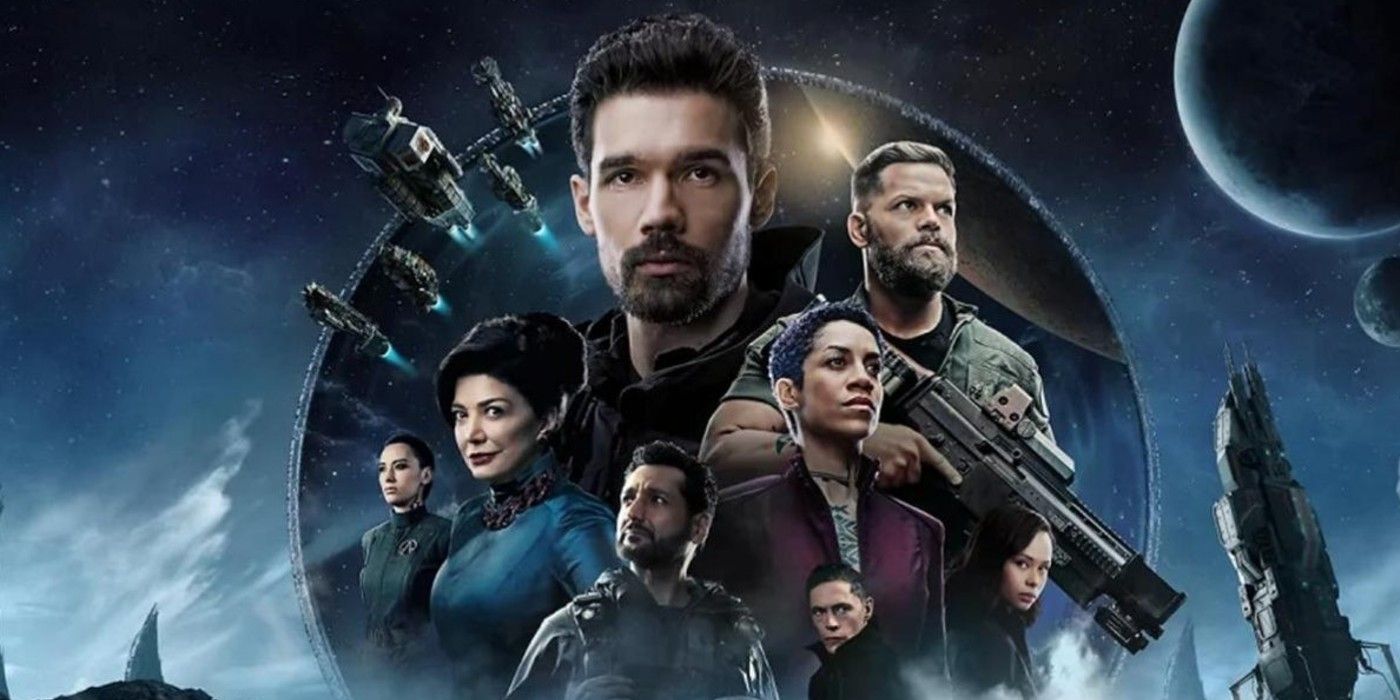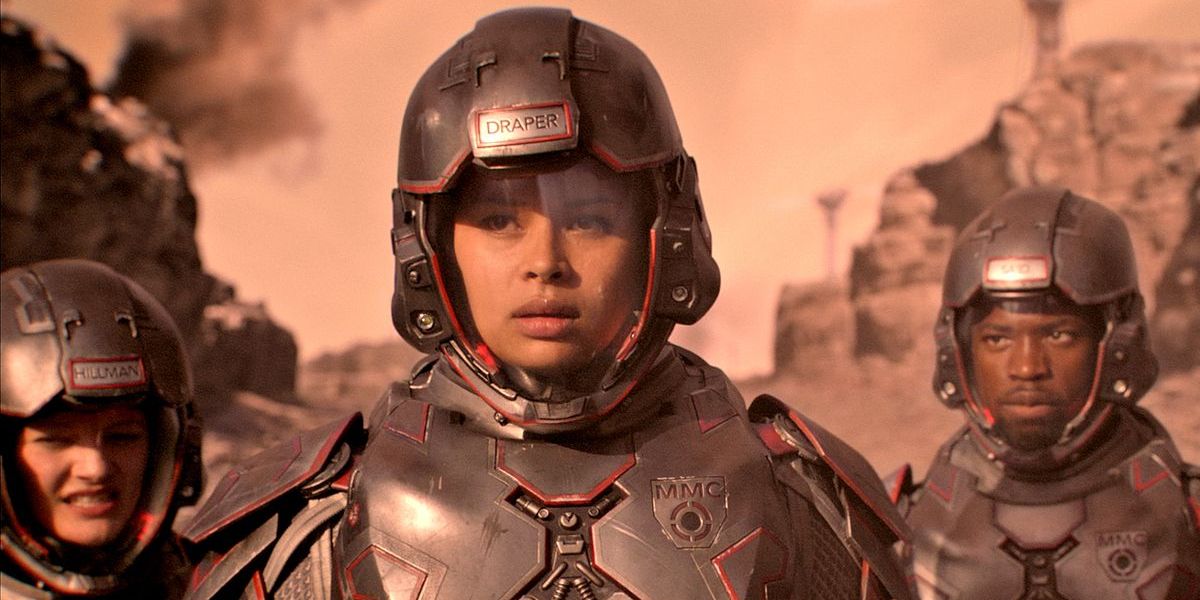The final season of The Expanse came to an end at the beginning of 2022, but its impact on viewers will endure for years to come. The show explores a future a few hundred years from now, in which humans have ventured beyond Earth to settle Mars, the moons of Jupiter, and the Asteroid Belt. Though it's primarily science fiction, the show is also a political drama. In addition to exploring advancing technology, it examines the what-ifs of governmental organizations, military operations, and conflicting ideologies in a world where humanity is spread throughout the solar system.
Political unrest is a theme throughout the show, and is especially prominent in the first few seasons. Earth and Mars are at each other's throats, and the Belt has no love for the inner planets. There's a long history here, one that the show itself can really only sketch a vague picture of. But Martians in particular, whenever they're airing their grievances towards Earth, tend to come back to the same point as a source of animosity: Humanity had a home, a cradle of life. We had a place where we could thrive, a place that gave us everything we needed as a species. And we ruined it.
The Dream Of Mars
Throughout the show, Martian soldiers and government officials often speak of "the dream of Mars," a centuries-old goal that the planet's people must strive and sacrifice for. That dream is to turn Mars into a garden, a planet just as lush and full of life as Earth once was. Often, when discussing this goal, it's inevitable that someone will eventually voice some bitterness towards Earthers. Earth, after all, once had the very thing that Martians dream of, but humanity sat by and watched while it died. From where Mars stands, humanity watched Earth's oceans grow polluted, watched its forests destroyed. Earthers, according to Mars, are spoiled and lazy. They didn't know what they had until it was too late, and now it's up to Mars to try and recreate it.
Despite their disdain for its residents, most Martians hold an idealistic vision of the planet Earth itself. When traveling there to appear before the U.N.N., Gunny expresses a wish to see the ocean, having heard it described by those who have visited Earth. Even when her superior tells her that it's filthy and stinking and full of garbage, she holds onto that dream, even breaking out of her quarters to look for the seaside.
What she finds is not the idyllic vision of a perfect day at the beach, but neither is it the toxic hellscape that was described to her. The ocean is gray, lapping at the concrete edge of the city, very little plant or animal life in sight. Yet Gunny finds what so many residents of Earth have found at the oceanside throughout the centuries: peace and stillness, a quiet place of respite to sort through her troubled thoughts. When Avasarala finds her there, remarking on how long it's been since she herself has been down to the water, it only reinforces what Gunny believes about Earthers, the opinion that she voices to the Undersecretary: "It's another thing you've taken for granted."
We Had A Garden
It is this dream of Mars, this goal to create an Eden for their people, that often shapes the way that Earthers view Martians. Some mock their goal or view it as naive — but in doing so, they tend to gloss over the very thing that makes the Martians want their paradise so badly, and reinforce the idea that Earthers simply don't value hard work. Others, such as Earth's ambassador to Mars, Frank DeGraaf, admire Mars' resilience and refusal to give up in the face of adversity. They have been dealt a poor hand, living on a dry, freezing planet, and yet they grow grapes to make the best wine in the system.
Mars seeks to be what Earth once was — because, in The Expanse, it is clear that there are very few places left untouched by technology and urban development. "We had a garden, and we paved it," Chrisjen Avasarala says, echoing a sentiment expressed by songwriter Joni Mitchell: "They paved paradise and put up a parking lot." She speaks her regrets mournfully gazing up at the night sky, shortly after DeGraaf's death. After his passing, she understands his love for the Red Planet; she understands his admiration for the resilience of its people. And a season later, when she meets Gunny on the beach, she doesn't deny that she and her people have taken their planet for granted. Although she doesn't say as much, her demeanor seems to convey that she agrees with the Martian soldier.
The Expanse doesn't hit the viewer over the head with its environmental message. That's not the issue at the core of the show. But the in-universe reality of the story is that overpopulation, pollution, and rapidly draining resources on Earth are major factors that drove humanity's expansion throughout the solar system in the first place. We were forced away from our planet because we didn't take care of it. Ultimately, that is what led to a divided humanity, a solar system filled with tension and animosity simply because every faction wants same thing: for their people to live the lives that were once possible on a flourishing Earth.



